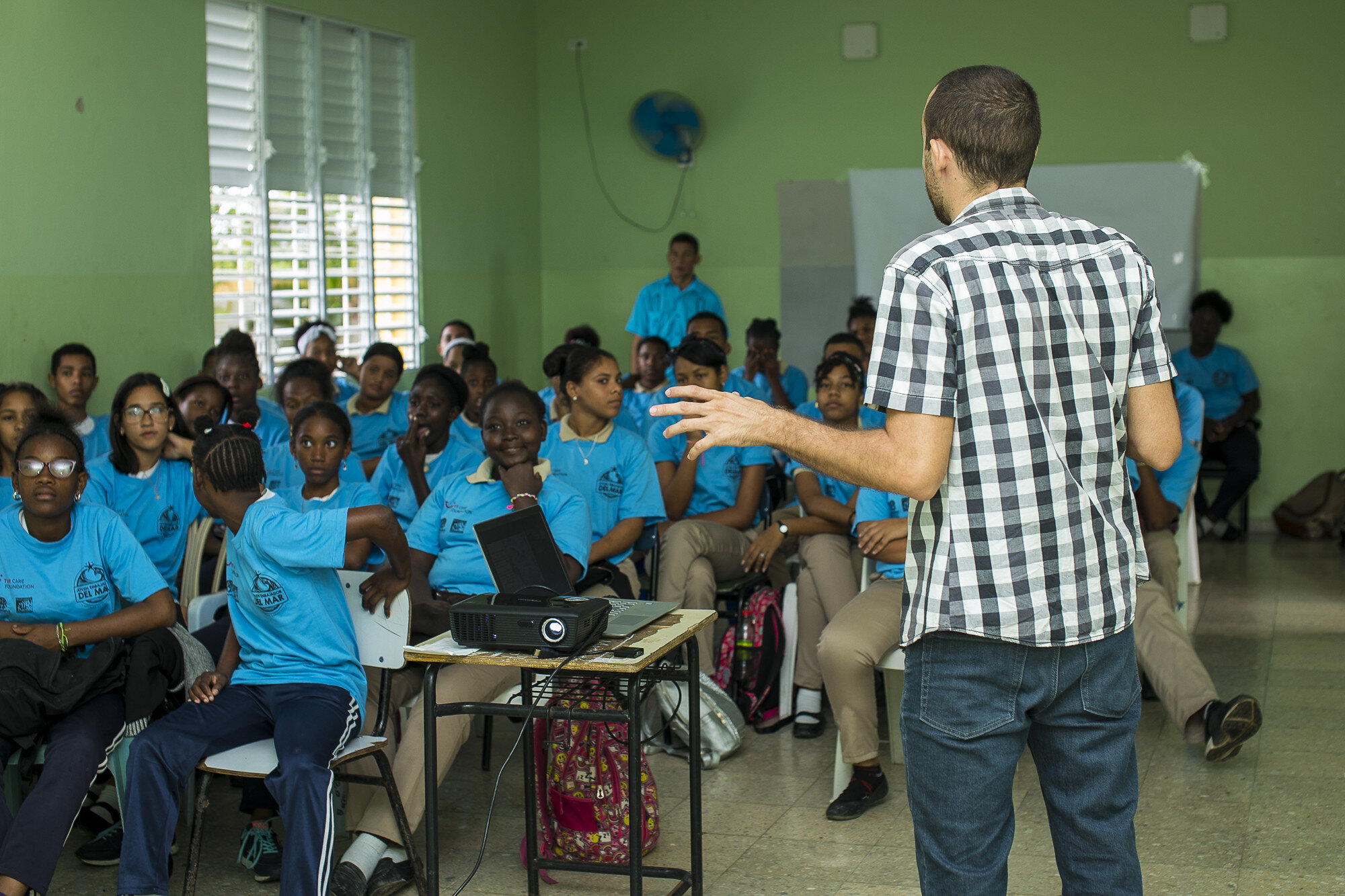Adapting our new approach in a global pandemic
This global pandemic has a variety of impacts the world over with few communities that haven’t been affected one way or another. It was in March 2020 when Jorge from Reef Check Dominican Republic, our main implementing partner for this project, was in the middle of delivering our Youth Ambassador curriculum to children across six schools in Punta Cana in the east of the country when the pandemic began.
Almost immediately, schools were told to shut by the government and a curfew was put in place. Like so many other conservation projects, this severely affected our efforts, supported by TUI Care Foundation, to deliver in-class environmental training to children across the country.
At first both teams at Reef Check Dominican Republic and Reef-World struggled to see how we could continue. Not only was the education component affected, but the other half of the project involved delivering best practice on sustainable marine tourism to scuba diving and snorkelling operators. And of course, the tourists vanished overnight.
However, TUI Care Foundation was quick to respond, confirming that the funding for this project will be protected and would support us where they can. Not every grant body has done the same during this time, and it’s allowed us to get creative!
Reef Check looked for alternative ways to reach out to the children across the country. Government restrictions on group sizes also meant alternatives like community groups and church groups were not an option.
The government was aware of how much of an issue this would be on the disruption to the children’s education and set up online Zoom classes for those children with internet access. This meant we had to adapt our in-class presentation to be delivered virtually in one-hour slots over 5 sessions in a single week.
In cooperation with the Education Department of the Ministry of Environment, Reef Check was able to deliver our unique curriculum to 196 children who each underwent 5 hours of lessons, quizzes and had the chance to ask questions. The enthusiasm for this topic was highlighted by the government as the 2nd most popular course in the country.
Furthermore, the children took initiative to continue engaging outside of their virtual classes by bringing discussions of their own onto Instagram with topics on beach cleanups, single-use plastic and the four main ecosystems covered in the classes – seagrass, mangroves, corals and the open seas.
The next phase of this project is overcoming the hurdles by reaching out to the diving operators and resorts that are slowly opening up as tourism returns to the country. Plans in the coming months are already underway to meet face-to-face with those businesses already engaged with the Green Fins initiative and to reach the ones that were interested in joining in a pre-pandemic world. Watch this space…


